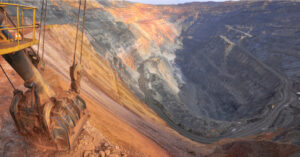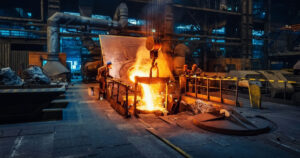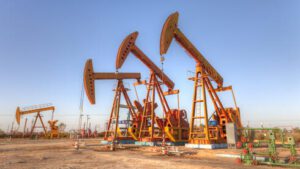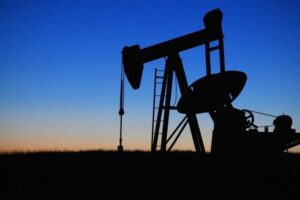
In January-November of this year, Ukrainian mining companies reduced exports of iron ore raw materials (IORM) in physical terms by 4.9% compared to the same period last year, from 30 million 250,394 thousand tons to 28 million 774,717 thousand tons.
According to statistics released by the State Customs Service (SCS) on Friday, foreign currency proceeds from iron ore exports decreased by 14% during this period, from $2 billion 530.162 million to $2 billion 176.431 million.
Exports of raw materials were mainly to China (44.94% of shipments in monetary terms), Slovakia (17.24%), and Poland (16.26%).
In addition, in January-November 2025, Ukraine imported mineral resources worth $92,000 in the amount of 128 tons from the Netherlands (47.83%), Italy (38.04%), and Norway (14.13%), while in the same period last year it imported 2,031 tons worth $409 thousand.
As reported, in 2024, Ukraine increased its exports of raw materials by 89.8% compared to 2023, to 33 million 699.722 thousand tons, and foreign exchange earnings grew by 58.7%, to $2 billion 803.223 million UAH.
In 2024, Ukraine imported mineral resources worth $414,000 in a total volume of 2,042 tons, while in 2023, 250 tons of these raw materials were imported worth $135,000. In 2023, exports of raw materials decreased by 26% in real terms compared to 2022, to 17 million 753,165 thousand tons. Foreign exchange earnings amounted to $1 billion 766,906 million (a decrease of 39.3%). A total of 250 tons of raw materials were imported for $135,000.

In January-October of this year, Ukrainian mining companies reduced exports of iron ore raw materials (IORM) in physical terms by 4.41% compared to the same period last year, from 27 million 790.352 thousand tons to 26 million 565.296 thousand tons.
According to statistics released by the State Customs Service (SCS) on Wednesday, foreign currency proceeds from iron ore exports decreased by 14.3% during this period, from $2 billion 341.865 million to $2 billion 7.246 million.
Exports of raw materials were mainly to China (44.49% of shipments in monetary terms), Slovakia (16.97%), and Poland (16.78%).
In addition, in January-October 2025, Ukraine imported mineral resources worth $86,000 in the amount of 118 tons from the Netherlands (51.16%), Italy (33.72%), and Norway (15.12%), while in the same period last year it imported 835 tons worth $261,000.
As reported, in 2024, Ukraine increased its exports of raw materials by 89.8% compared to 2023, to 33 million 699.722 thousand tons, and foreign exchange earnings grew by 58.7%, to $2 billion 803.223 million UAH.
In 2024, Ukraine imported mineral resources worth $414,000 in a total volume of 2,042 tons, while in 2023, 250 tons of these raw materials were imported worth $135,000. In 2023, exports of raw materials decreased by 26% in real terms compared to 2022, to 17 million 753,165 thousand tons. Foreign exchange earnings amounted to $1 billion 766,906 million (a decrease of 39.3%). A total of 250 tons of raw materials were imported for $135,000.

In January-August of this year, Ukrainian mining companies reduced their exports of iron ore raw materials (IORM) by 7% in real terms compared to the same period last year, from 23 million 318,681 thousand tons to 21 million 679,221 thousand tons.
According to statistics released by the State Customs Service (SCS), foreign currency proceeds from iron ore exports decreased by 19.6% during this period, from $2 billion 32.671 million to $1 billion 633.454 million.
Exports of raw materials were mainly to China (43.71% of shipments in monetary terms), Slovakia (17.72%), and Poland (16.87%).
In addition, in January-August 2025, Ukraine imported mineral resources worth $58 thousand in the amount of 86 tons from Italy (40.35%), the Netherlands (36.84%), and Norway (22.81%), while in the same period last year it imported 794 tons worth $223,000.
As reported, in 2024, Ukraine increased its exports of raw materials by 89.8% compared to 2023, to 33 million 699.722 thousand tons, and foreign exchange earnings grew by 58.7%, to $2 billion 803.223 million UAH.
In 2024, Ukraine imported mineral resources worth $414,000 in a total volume of 2,042 tons, while in 2023, 250 tons of these raw materials were imported worth $135,000.
In 2023, Ukraine reduced its exports of raw materials by 26% in real terms compared to 2022, to 17 million 753,165 tons.
Foreign exchange earnings amounted to $1 billion 766.906 million (a decrease of 39.3%). Raw materials worth $135 thousand were imported, totaling 250 tons.

In January-July of this year, Ukrainian mining companies reduced exports of iron ore raw materials (IORM) in physical terms by 8% compared to the same period last year, to 19 million 145,471 thousand tons from 20 million 803,661 thousand tons.
According to statistics released by the State Customs Service (SCS) on Tuesday, foreign currency earnings from exports of iron ore raw materials decreased by 20.3% during this period, to $1 billion 460.316 million from $1 billion 831.314 million.
Raw materials were exported mainly to China (43.67% of shipments in monetary terms), Slovakia (17.9%), and Poland (16.82%).
In addition, in January-July 2025, Ukraine imported raw materials worth $58 thousand in the amount of 86 tons from Italy (40.35%), the Netherlands (36.84%), and Norway (22.81%), while in the same period last year it imported 771 tons worth $208 thousand.
As reported, in 2024, Ukraine increased its exports of raw materials by 89.8% compared to 2023, to 33 million 699.722 thousand tons, and foreign exchange earnings grew by 58.7%, to $2 billion 803.223 million.
In 2024, Ukraine imported mineral resources worth $414,000 in a total volume of 2,042 tons, while in 2023, 250 tons of these raw materials were imported worth $135,000.
In 2023, Ukraine reduced exports of raw materials in physical terms by 26% compared to 2022, to 17 million 753.165 thousand tons. Foreign exchange earnings amounted to $1 billion 766.906 million (a decrease of 39.3%).
Raw materials worth $135,000 were imported, totaling 250 tons.

The Bloomberg Commodity Spot commodity price index fell to an eight-month low amid fears of a recession in the global economy.
The index, calculated on the basis of prices for a wide range of commodities – from oil and copper to wheat, on Monday fell by 1.6%, to a minimum since January 24. Its value has fallen by 22% from the peak level recorded in July. The rise associated with a jump in commodity prices immediately after the start of the Russian war in Ukraine has completely disappeared.
The continued strength of the dollar is making dollar-denominated commodities more expensive for overseas buyers, worsening demand prospects, Bloomberg said.
Experts see an opportunity for further decline in commodity prices, despite the fact that the supply of many commodities is limited. The unprecedented pace of raising key interest rates by world central banks, trying to contain the highest inflation in decades, raises fears of a recession in the global economy. The downturn, in turn, will worsen the outlook for energy demand and investor appetite for risk, economists warn.

Prime Minister Denys Shmygal asks Denmark to consider the possibility of supplying Ukraine with raw materials needed for farmers and oil products.
“I thanked for the decision to take part in the restoration of the city of Nikolaev together with other international partners. Also, in the coming days, as Prime Minister Matte Frederiksen promised, Ukraine will receive equipment and machinery that will help in the restoration of the liberated cities,” Shmyhal wrote on the Telegram channel following a meeting with Danish Foreign Minister Jeppe Kofodom.
According to him, the parties discussed the supply of military equipment, the tightening of sanctions against Russia and the rejection of Russian energy resources.
“I touched upon the issue of diversifying gas supply sources. I made a proposal to consider the possibility of supplying Ukraine with raw materials needed for farmers and oil products, since the enemy is purposefully trying to disrupt the sowing season and cause a shortage of fuel,” the prime minister wrote.
Among other things, Shmygal thanked Denmark for its strong political and financial support.
“We also count on Ukraine’s support in acquiring the status of a candidate for EU membership and on the approval decision of the European Commission to suspend import duties on all Ukrainian exports for a year,” he added.